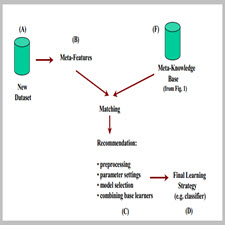توضیحات
ABSTRACT
The implementation of programme-targeted method in the budget process in Ukraine demonstrates the difference between public administration using programs (budget programs) and based on programme management. The budget program has the structure of a programme document, but the content corresponds to the reformatting line-item budget. There are two main problems of application of the programme management methodology in fiscal policy: a sequence of programme objectives and heterogeneity of time. For fiscal policy the selection and distribution of programme objectives (results, effects) in space and time is a key component of management. Despite the complexity and uncertainty of any calculation of the programme product cost should take into account that the sequence of the outcomes affects the total programme result. In this context, the choice of performance, productivity and efficiency indicators based on different time of occurrence and characteristics of the result, product and effect of the financial instruments use to govern financial mechanism as part of the programme management .Results should be evaluated on the ability to become a product that takes effect. The effect of the financial tools application is spaced in time from the result. Efficiency should not be understood as a ratio, but as the correlation with the anticipated cost (value) remote effect, which does not coincide with the result of the programme delivered on time.
INTRODUCTION
The complexity of the global economic situation, the uncertainty of financial stabilization regulatory mechanisms and recovery from the global crisis, strengthen the requirements on the results of the programme management of public finance and programmes aimed at reforming the economy and achieve sustainable development. Implementation of stabilization programs and, especially, economic reform requires the establishment of a single financial mechanism, demonstrating the unity of the forms, methods and tools of financial management in accordance with the financial policy objectives and economic and social development.
چکیده
پیاده سازی روش هدفمند برنامه در فرایند بودجه در اوکراین نشان دهنده تفاوت بین مدیریت دولتی با استفاده از برنامه ها (برنامه های بودجه) و بر اساس مدیریت برنامه است. برنامه بودجه دارای ساختار یک سند برنامه است، اما محتوای آن مربوط به بودجه خطی بازنویسی است. دو مشکل عمده استفاده از روش مدیریت برنامه در سیاست مالی وجود دارد: یک دنباله از اهداف برنامه و ناهمگونی زمان. برای سیاست مالی، انتخاب و توزیع اهداف برنامه (نتایج، اثرات) در فضا و زمان، جزء کلیدی مدیریت است. علیرغم پیچیدگی و عدم اطمینان هر محاسبه هزینه محصول برنامه، باید توجه داشت که توالی نتایج بر کل نتیجه برنامه تأثیر می گذارد. در این زمینه، انتخاب شاخص های عملکرد، بهره وری و کارایی براساس زمان های مختلف وقوع و ویژگی های نتیجه، محصول و اثر ابزارهای مالی برای مدیریت سازوکار مالی به عنوان بخشی از مدیریت برنامه استفاده می شود. نتایج باید براساس توانایی تبدیل شدن به یک محصول که اثر می گذارد اثر برنامه ابزار مالی در زمان از نتیجه فاصله گرفته است. کارایی نباید به عنوان یک نسبت درک شود، بلکه به عنوان رابطه ای با اثر از راه دور هزینه (ارزش) پیش بینی شده است که با نتیجه برنامه در زمان تحویل نباشد.
مقدمه
پیچیدگی وضعیت اقتصادی جهانی، عدم اطمینان از مکانیزم های قانونی تثبیت مالی و بهبودی از بحران جهانی، الزامات مربوط به نتایج برنامه مدیریت امور مالی و برنامه های دولتی را که جهت اصلاح اقتصاد و دستیابی به توسعه پایدار است تقویت می کند. اجرای برنامه های تثبیت و بویژه اصلاحات اقتصادی نیازمند ایجاد یک مکانیسم مالی واحد است که نشان دهنده یکپارچگی فرم ها، روش ها و ابزارهای مدیریت مالی مطابق با اهداف سیاست مالی و توسعه اقتصادی و اجتماعی است.
Year: 2014
Publisher : ELSEVIER
By : Ganna Lytvynchenko
File Information: English Language/ 5 Page / size: 126 KB
Only site members can download free of charge after registering and adding to the cart
سال : 1393
ناشر : ELSEVIER
کاری از : گانا لیوتوینچنکو
اطلاعات فایل : زبان انگلیسی / 5 صفحه / حجم : KB 126


![Programme management for public budgeting and fiscal policy.[taliem.ir]](https://taliem.ir/wp-content/uploads/Programme-management-for-public-budgeting-and-fiscal-policy.taliem.ir_.jpg)

![Corporate Informatics and Strategic Management[taliem.ir]](https://taliem.ir/wp-content/uploads/Corporate-Informatics-and-Strategic-Managementtaliem.ir_.jpg)



![Standardization and Adaptation of International Marketing Mix[taliem.ir]](https://taliem.ir/wp-content/uploads/Standardization-and-Adaptation-of-International-Marketing-Mixtaliem.ir_-1-150x150.jpg)
![Customer Relationship Management based on Employees and[taliem.ir]](https://taliem.ir/wp-content/uploads/Customer-Relationship-Management-based-on-Employees-andtaliem.ir_-150x150.jpg)
نقد و بررسیها
هنوز بررسیای ثبت نشده است.